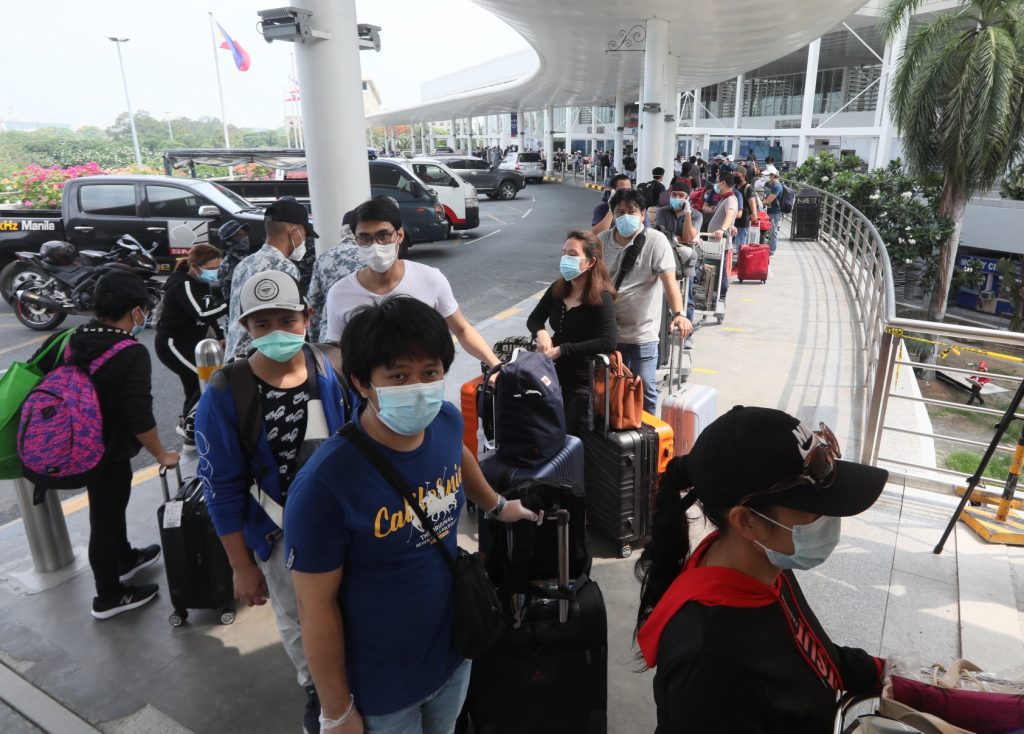News
DMW digitalization to ease processing of OFW documents

FILE: Overseas Filipino workers (OFWs) heading to their hometowns after completing mandatory quarantine queue at the departure area of Ninoy Aquino International Airport Terminal 2 during a send-off on Tuesday (May 26, 2020) (PNA photo by Avito C. Dalan)
MANILA – The Department of Migrant Workers (DMW) has vowed to cut down the processing time of documents of overseas Filipino workers (OFWs) via digitalization in partnership with the Department of Information and Communications Technology (DICT).
DMW Secretary Susan Ople said President Ferdinand Marcos Jr. wants the delivery of programs and services to the OFWs and their families to be swift.
“When I assumed office, I discovered that it could take a minimum of three months for an employer to work with our embassy and the office of labor to get accreditation. It’s not even the hiring process, it’s just the accreditation process,” Ople said in a post-State of the Nation Address Economic Briefing at the Philippine International Convention Center in Pasay City on Tuesday.
She said they looked into the number of steps and found a lot of redundancies.
“By doing away with all those redundant procedures and unnecessary requirements, even the number of signatures, we are confident that we can cut that timeline from a minimum of three months to perhaps less than a month or three weeks,” Ople said.
She said the DMW is also looking into complaints made by vacationing OFWs regarding the time spent applying for and obtaining their Overseas Employment Certificate (OEC).
The OEC, also known as exit clearance, certifies the regularity of recruitment and documentation of an OFW. It also serves as proof of registration with the Philippine Overseas Employment Administration.
An OFW exiting the country without OEC may be prevented from leaving.
“The DICT and the DMW will be working closely together so that the OEC will now be paperless. It can be stored on the worker’s phone, and there will be a corresponding digital solution at the immigration so that every international airport that we have in the country is now seamless,” Ople said.
The DMW has likewise resumed talks with Saudi Arabia on the deployment of skilled workers and bilateral agreements on enhanced safeguards for Filipino workers.
She also noted that as Filipinos are leaving to work abroad, many are returning for good.
She thus invited the business community, including diplomatic posts and international organizations, to help in the OFW’s reintegration.
“Please help us put in or define as many reintegration pathways for our returning OFWs to cut the cycle of intergenerational labor migration,” Ople said. “We have a lot of talented overseas workers returning to the country in search of possible investments, also, local employment, and even partnerships for business and even social programs that they can join.”
She said the DMW would strengthen its campaign against illegal recruitment and human trafficking and look after the welfare of children of OFWs left behind by opening a program specifically for them.





















